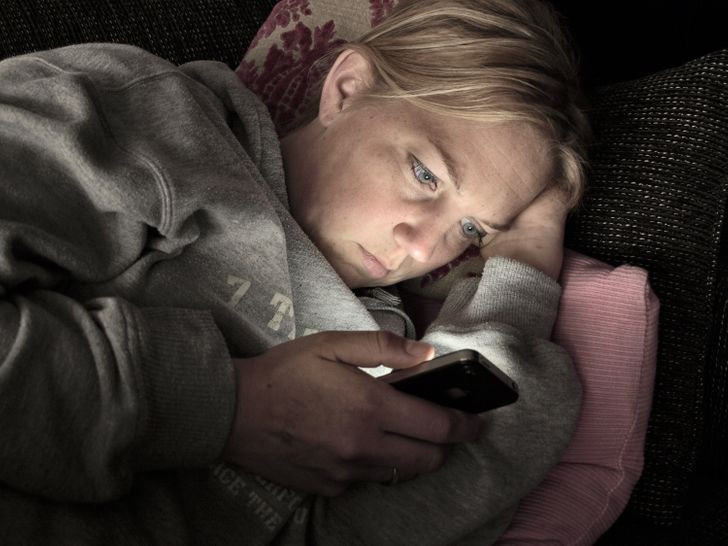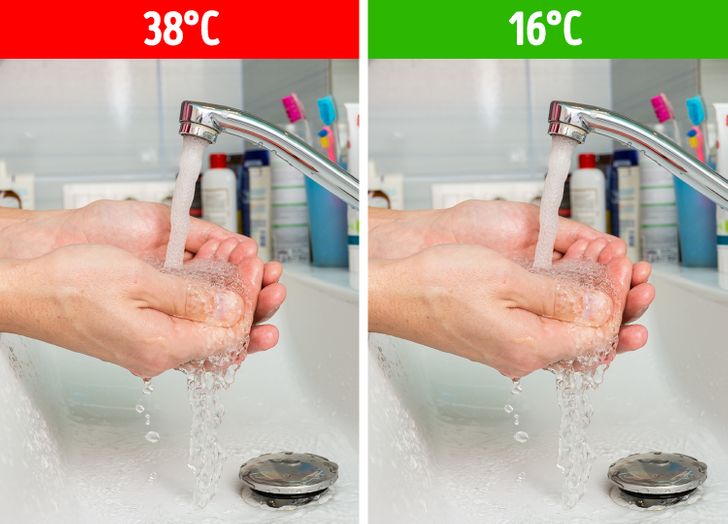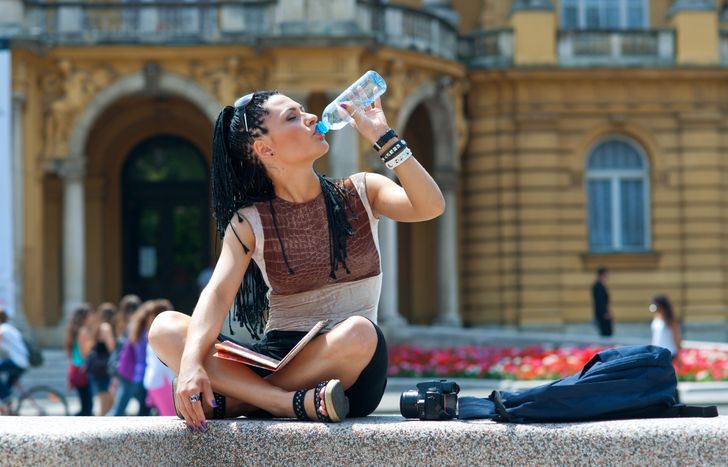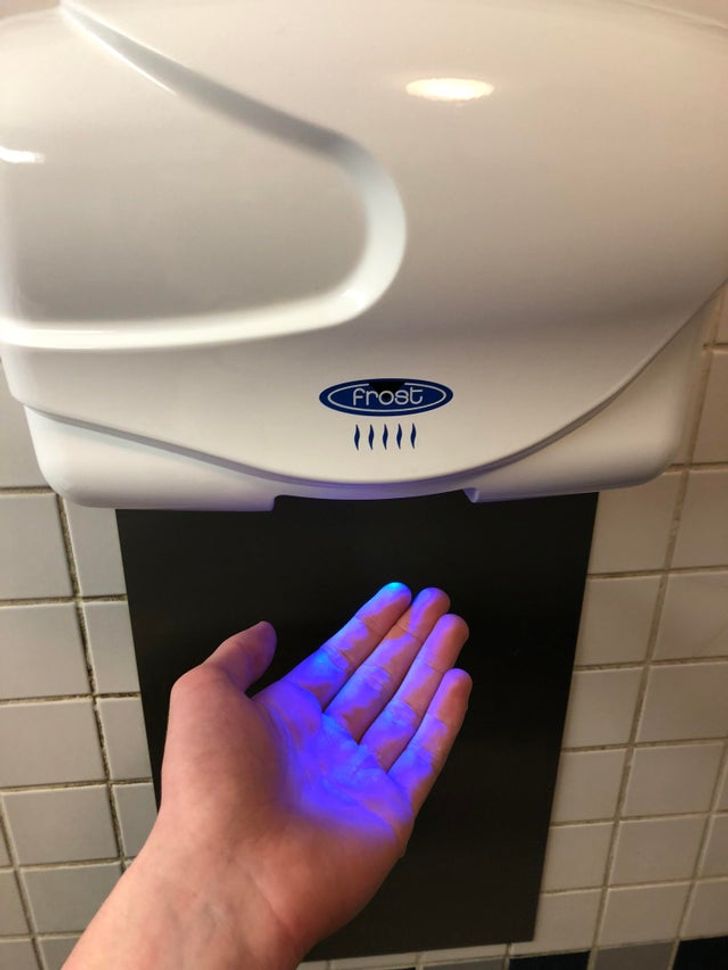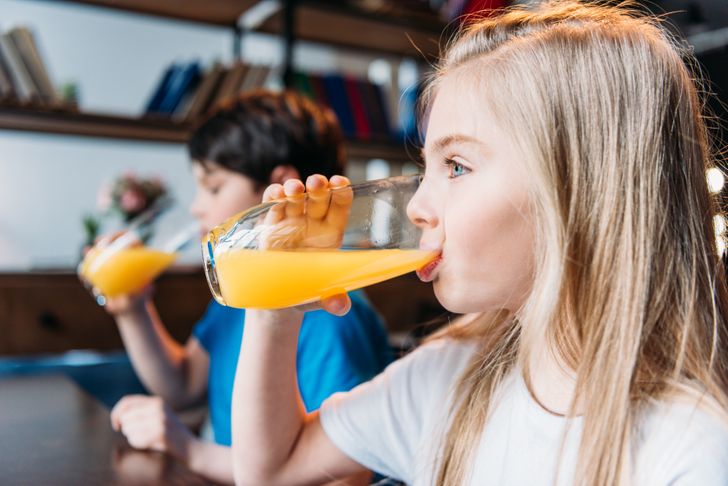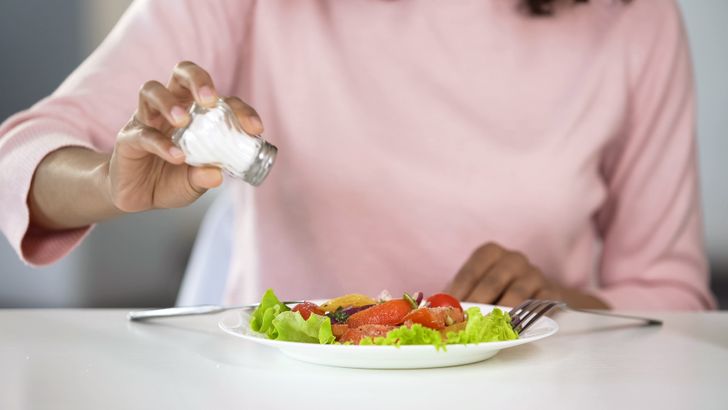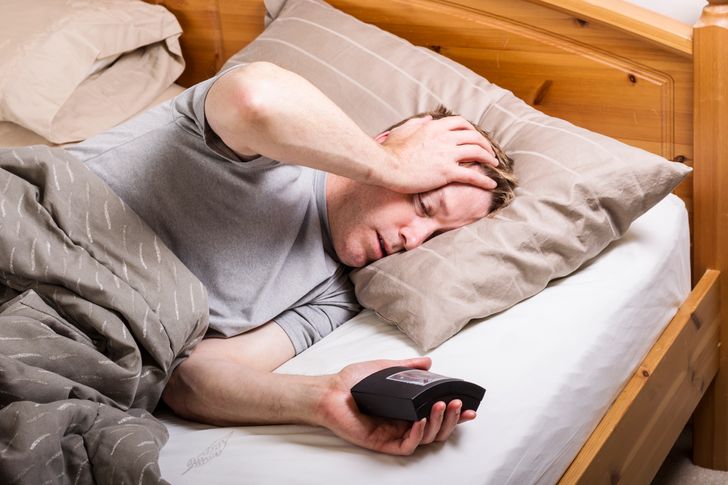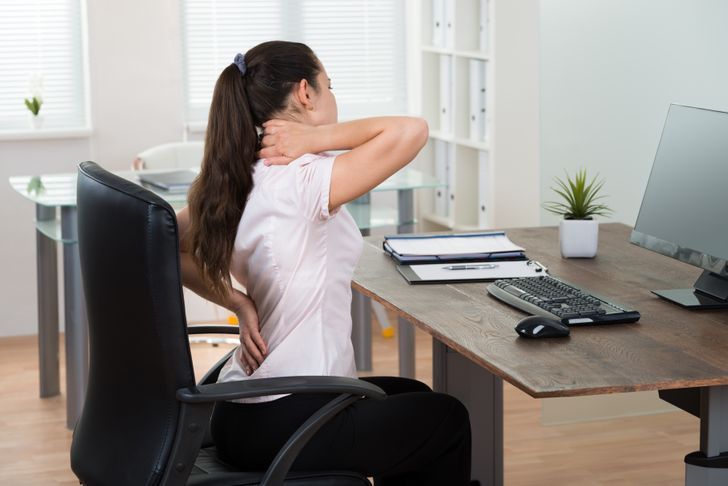I eat my food too quickly too..
12 Daily Habits That Harm Our Health Little by Little
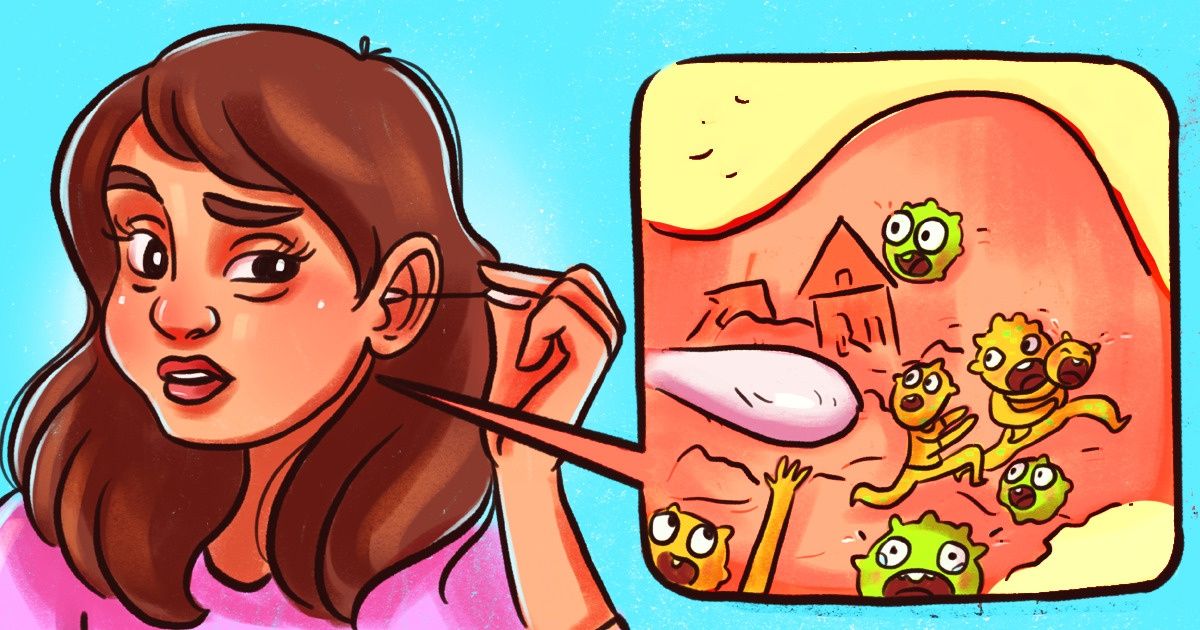
Everyone knows that habits like smoking or eating a lot of junk food can have a negative impact on our health, but there are a lot of lesser-known harmful habits that have become a part of our everyday lives.
1. Keeping your wallet in your back pocket
Anyone who carries a wallet knows that the most convenient place to keep it is in the back pocket of your jeans. But, while that may be convenient, it definitely isn’t healthy. Sitting on your wallet even for a brief 15-minute period can cause your spine to shift and your spinal ligaments will start to change.
This will eventually create an asymmetry that can disrupt your spine’s normal alignment. Sitting on your wallet for long periods can cause chronic back pain, sciatica, and functional scoliosis.
2. Bringing electronics into bed with you
Recent studies have shown that using electronic devices before going to bed steals our sleep and reduces our sleep quality. Yet, a poll taken by the National Sleep Foundation shows that an estimated 89% of adults and 75% of children have at least one electronic device in their bedroom.
Not only does regularly using electronic devices before bed hurt the quality of our sleep, but it also causes us to gain weight and provokes daytime fatigue. It also affects our productivity levels, learning capabilities, and stress levels. Isolating yourself from electronic devices for at least an hour before going to bed can greatly improve your sleep quality and preserve your health.
3. Washing your hands with hot water
Various studies have confirmed that hot and cold water are equally effective at killing germs and removing bacteria from our hands. According to these studies, whether it was 38°C or 16°C, water temperature didn’t play a vital role in reducing bacteria. Furthermore, it has been proven that cold water is actually healthier for our hands than hot water.
While it is known that hot water kills bacteria, there is a wrong perception about that. Hot water doesn’t kill bacteria — scalding and nearly boiling water does, which is why medical instruments are boiled in order to be sterilized. Given that washing your hands with boiling water isn’t an option, using cold water is by far the better alternative. Why? Because washing your hands with warm water will soften your skin, making your hands more vulnerable to germs.
4. Drinking from plastic bottles
It would be logical to assume that drinking from plastic bottles is a safe and healthy thing to do. However, not all materials are equally safe and environmentally-friendly. Plastic bottles pose a threat from the chemicals they release when exposed to high temperatures.
For example, if you leave the bottle in your car on a hot day, the superficial layers of the plastic may release a toxic chemical (bisphenol A) which can contaminate the water you are drinking. This chemical can affect your endocrine system and increase your risk of endometriosis and breast cancer.
5. Consuming your food too quickly
Multiple studies have shown that eating fast and chewing your food too quickly can lead to several health problems. Eating fast can lead to putting on weight at an accelerated rate and can even increase your risk of heart disease, diabetes, and stroke.
Fast eaters are also more likely to overeat, since it takes approximately 20 minutes from the time you start eating for your brain to transmit signals of being full. So, you may be full and keep on eating, but you may not know it since your brain doesn’t have enough time to react and recognize that you are full.
6. Brushing your teeth right after eating
Even though some of us tend to brush our teeth right after eating, according to multiple studies, you should wait for at least 30-minutes after you eat before brushing them. Our teeth are protected by enamel, and acids created by different foods can wear away this protective enamel, meaning that our teeth are at their weakest state right after eating.
Thankfully, our bodies have a way of balancing the high acid levels with the help of our saliva, but that takes time. So, brushing your teeth right after eating means you’re attacking your teeth, even if you use a soft toothbrush. It’s best to let the saliva do its job and balance the high acid levels before you brush your teeth. The better alternative would be to rinse your mouth with water or chew sugarless gum while you wait for your teeth to recuperate.
7. Cleaning your ears with cotton swabs
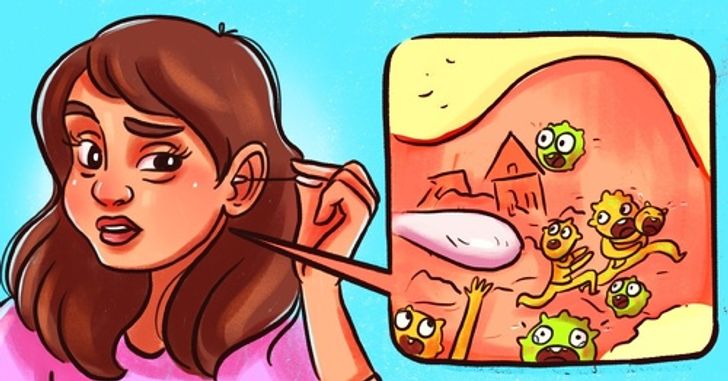
Cleaning your ears with cotton swabs does more damage than good. According to a study, cleaning your ears with cotton swabs pushes the earwax further down into the ear canal. It can also lead to infections, perforated eardrums, impacted earwax, and tinnitus.
It is actually recommended that you leave the earwax alone, and let it fall out naturally. The earwax works like a filter for the ear canal, preventing dust and dirt from entering into it. Cleaning your ears with cotton swabs makes the ears vulnerable to pollution. Still, if you feel the need to clean your ears, cleaning them with a towel will suffice.
8. Using a hand dryer
Hand dryers may be a more environmentally-friendly solution than paper towels, but they certainly aren’t healthier for us. A study showed that hand dryers in public restrooms spread fecal germs onto your hands. The mechanism that hand dryers use by blowing air is usually prone to transferring bacteria in the air of the restroom.
The results of this study indicate that many types of bacteria, including spores and pathogens, can be transferred onto your hands. The best thing to do would be to avoid using hand dryers and dry your hands the good old-fashioned way, by using a paper towel.
9. Drinking too much juice
It’s a well-known fact that orange juice is rich in vitamin C, vitamin B, and various antioxidants. Actually, drinking juice is considered a healthy habit. However, drinking too much of it can be harmful to our health, since it can cause tooth decay, type 2 diabetes, and obesity.
The reason why drinking too much juice is harmful to us is because it contains high levels of fructose. It doesn’t matter what type of juice you’re drinking, because even the highest quality juices still contain a significant dose of sugar.
10. Consuming too much salt
While salt may make our food taste better by adding a much-needed flavor boost, it isn’t good for our health. The amount of salt you consume has a direct effect on your health, and it has been associated with several health conditions.
While salt is vital for our health, it makes our bodies retain water, and the extra water raises our blood pressure. Ultimately, high blood pressure may strain your heart, arteries, and kidneys.
11. Sleeping too much
Sleep is a time when the body recuperates and repairs itself. You would be wrong to assume that more sleep equals more rest and better health. Studies have proven that oversleeping brings with it a number of health hazards.
The right amount of sleep varies from one person to another, but the general benchmark of good sleep is somewhere between 7-9 hours. Consider this to be the optimal sleeping pattern. Too much sleep on a regular basis has been linked to higher rates of mortality, depression, heart disease, obesity, and impaired brain functioning.
12. Sitting down all day
When people work, study, and socialize, they often do these activities in a seated position. And sitting too much brings with it a number of health problems that we shouldn’t ignore. Sitting doesn’t involve an immense energy expenditure, meaning that you don’t burn many calories while you’re in a seated position.
Translated into health outcomes, this means that sitting too much is connected to health problems like premature mortality, type 2 diabetes, cardiovascular disease, and obesity. If your job involves sitting for the better part of the day, try taking a break from sitting every 30 minutes, stand while talking on the phone, or go for a few short walks to minimize the negative effects of sitting too much.
Comments
I think it's healthier to eat an orange instead of drinking orange juice from the store
or just drink water, which is always good for your organism :)
So how should I clean my ears?
I think it's better to use worm water rather than hot water.
I found related authentic study in this article. https://brightinside.net/how-warm-water-can-be-a-real-medicine/
It's actually good to know...?
It’s healthy to eat a fruit instead drinking a juice
We shouldn’t 100% eliminate sodium from our diets. I have started trying to put it back in after using other seasonings instead of salt. We overdo some things, but articles can be misleading. Sometimes the extreme conclusions are not the conclusions of the scientists conducting studies. One thing we learned in the medical schooling I did was to pay attention to the end of the web address to know what to take the most seriously. .com is going to be more misleading than .org or an actual scientific study done by a university, which are less likely to be for profit or an advertisement. We were not allowed to use a .com for our research papers and I admired that rule. In high school we were asked to use more physical books than websites, which was a decent rule of thumb as well. Sure, all the clutter tv shows want us to sell our encyclopedias in lieu of information on computers and smartphones, but we do put too much stock into what we read online. I would say I am still reading articles from Brightside. Just be careful when it comes to medical advice! =)
Related Reads
15+ Mothers-in-Law Who Can Turn an Ordinary Day Into a Comedy Show

I Refuse to Let My Mother Disrespect My Stepdaughter, Even If It Costs Our Relationship

I Was Shamed for Being a Single Mom — but My Little Girl, 6, Had the Last Word

I Refused to Work on My Vacation, Even Though “Millions Were at Stake”
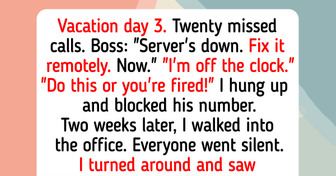
16 Times a Marriage Proposal Went Hilariously Off-Script

My BFF Invited Me to Her Baby Shower, It Turned Into My Worst Nightmare

I Refuse to Be Left Out Without Consequences

10 Moments That Proved the Worst Betrayal Comes From Home
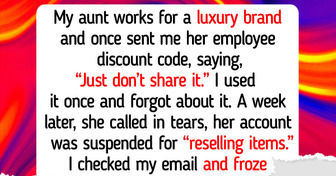
12 Stories So Wild They Might Break the Internet

I Refused to Let My Husband Be a Birth Partner for His Best Friend, Now I’m the Villain

18 Guests Who Forgot They Weren’t the Main Character at Someone Else’s Wedding

My Neighbor Treated My Driveway Like Free Parking, So I Taught Him a Lesson

